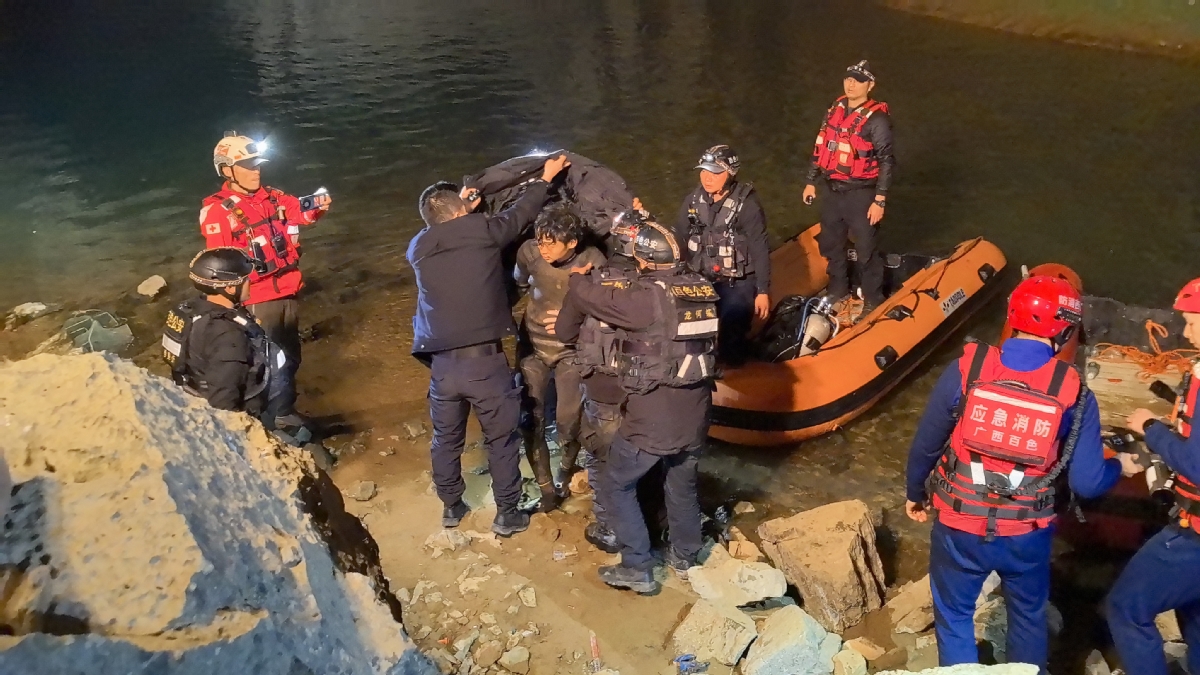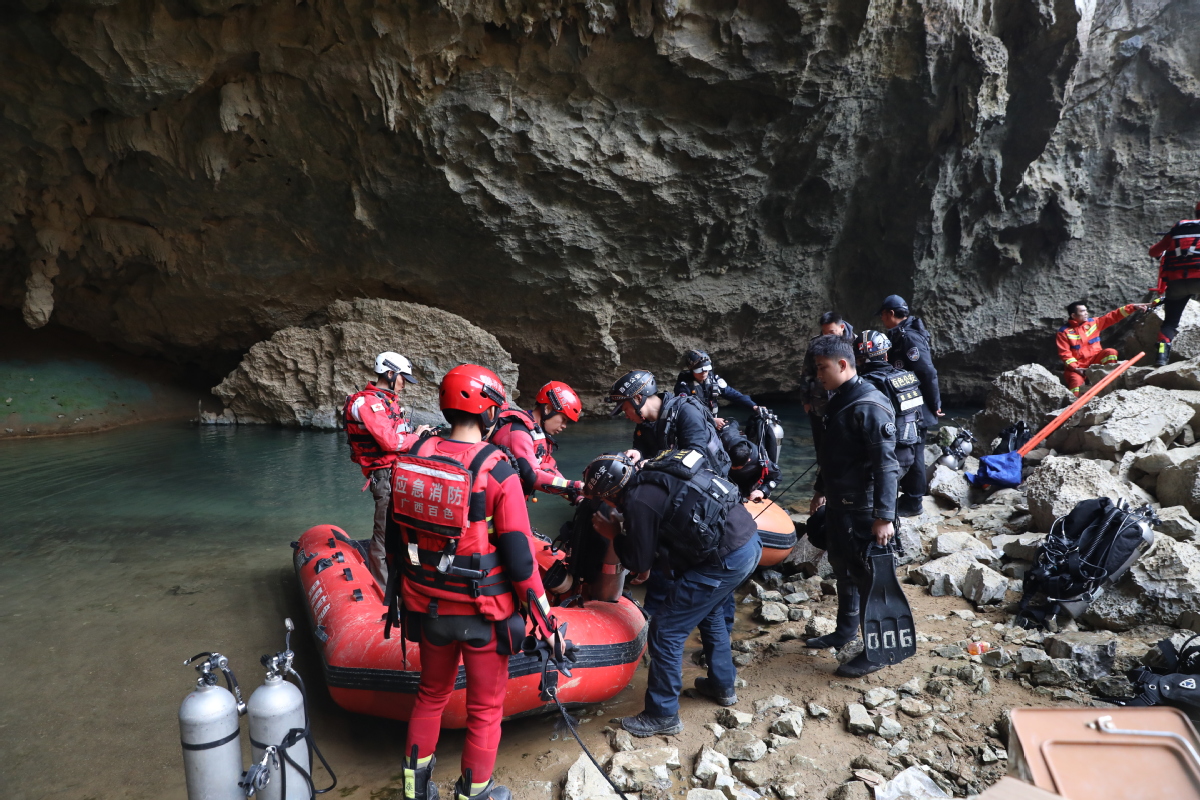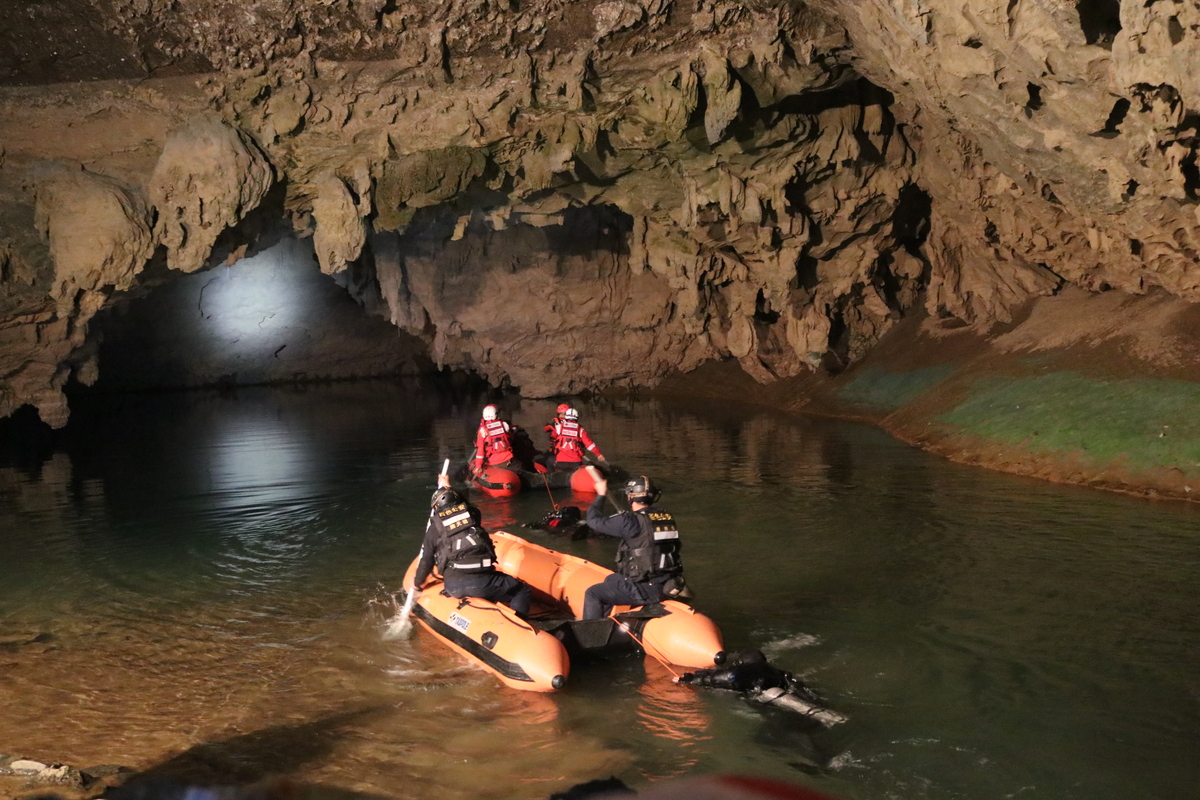Lost cave divers rescued after 69-hour operation






For 27-year-old Zhou Yuanpeng (pseudonym), a university researcher studying cave-dwelling fish, what began as a routine scientific expedition turned into a life-threatening ordeal ultimately turned into a testament to human resilience, and China's evolving cave-diving rescue capabilities.
On Feb 5, Zhou and four teammates from an aquatic cave biodiversity survey team ventured into a karst cave in Na'e village in Baise, Guangxi Zhuang autonomous region. They dove to photograph rare cave fish and shrimp in their natural habitat.
As night fell, Zhou and another researcher, an older man also surnamed Zhou, became trapped in the labyrinthine underwater passages and lost contact with their teammates. Their colleagues alerted authorities, triggering a 69-hour rescue operation involving 13 divers, firefighters and medical teams.
The cave, located at the source of the Huowang River, initially appears as a large hall but narrows deeper inside. It contains air chambers — spaces where the rock walls curve upward like an upside-down basin, with water below and pockets of trapped air above — according to Liang Liang, deputy chief of Baise's urban patrol police.
"It's a geological maze with interwoven folds, faults and underground rivers," Liang said. "The complex environment was unknown to us, which was the biggest challenge."
With water depths reaching 18 meters, rescuers used five 200-meter reels to navigate the murky waters with guide ropes, where visibility was limited to just 3 meters. Divers relied on portable lights as they searched through cliffs, faults and stalactites.
At first, rescuers only heard faint tapping sounds from the trapped researchers.

After more than four hours of underwater searching, the first survivor, the elder Zhou, was found at 4:30 am on Feb 6, trapped in an air chamber 16 meters below the surface and 300 meters from the cave's entrance. He was brought out 90 minutes later.
But the younger Zhou remained missing.
Xu Shide, a diver with the Baise Public Security Bureau's water rescue team, said the first survivor was found relatively close to the cave entrance on the third dive. But Zhou was trapped much deeper, forcing rescuers to search multiple chambers.
Over the next three days, divers conducted more than a dozen exhausting dives, battling strong currents and jagged limestone formations.
"Our physical and mental strength were at their limits, but no one gave up," said Wu Xinghao, a member of the rescue team.
Finally, at 6:50 pm on Feb 8, they found the younger Zhou in an air chamber 28 meters deep and 500 meters from the entrance.
Zhou Yuanpeng was so weak after three days without food that he could barely respond, Wu said. Wu stayed with him, talking to keep him conscious, while Xu retrieved scuba tanks, diving equipment and glucose.
Once Zhou Yuangpeng regained some strength, he and the rescuers began their exit at 8:30 pm. The narrow, complex passageways made pulling him out impossible, so he had to swim out. He was later taken to a hospital.

Weak and exhausted, Zhou Yuanpeng said he hallucinated as his hope faded. "I believed those were my final moments."
His father tearfully thanked the rescuers. "They gave my son a second life!"
The mission marked China's first successful cave-diving rescue.
"The team was professional, with cave rescue skills and advanced equipment," said Tang Junwen, a veteran cave diver and trainer with the Ministry of Emergency Management. "Plus, these caves weren't completely enclosed, allowing trapped divers to find air pockets."
Tang said survival chances plummet after 60 hours without contact. "This case is very inspiring and offers valuable experience for future rescues."
Wei Bai, a member of World Underwater Discovery and a domestic expert in cave diving, helped formulate the rescue plan and described the mission as exceptionally challenging.
"Our operation this time finally shifted from recovering bodies to rescuing survivors," he said. "It validates China's growing expertise in cave diving rescues, especially that of the Baise public security team."



















